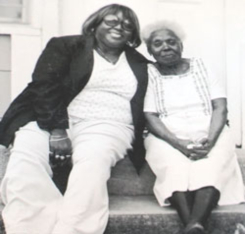Telehealth Hospice Admissions
To maximize our availability for you and your patients, we use a mobility-first, telehealth platform for virtual hospice admissions, care coordination, advance care planning, and other critical hospice functions.
Through telehealth, which can include video and/or audio communications, VITAS enables seamless, secure referrals and virtual care transitions, supporting healthcare professionals 24/7 as they pursue comfort-focused care for their patients with advanced illness.
Virtual Hospice Admissions
VITAS clinicians are available at any time—days, evenings, after hours, weekends, holidays—for patient eligibility assessments and telehealth hospice admissions via secure videoconference. Timely admissions allow you and your staff to attend to other responsibilities while improving patient and family satisfaction scores for your facility.
During a virtual hospice admissions visit, a VITAS admissions nurse will:
- Review the patient’s symptoms with the patient and, if appropriate, caregiver
- Have a conversation about the patient’s goals of care
- Conduct a head-to-toe assessment of the patient with the patient’s caregiver or current healthcare provider
- Review the patient’s current medications
- Evaluate the patient’s preferred setting of care to determine which home medical equipment may be needed
Our telehealth capabilities also support:
- Goals-of-care conversations: Whenever your patient is ready, VITAS specialists can conduct or support your goals-of-care conversations and discussions about advance care planning via telehealth. This ensures every patient receives the most appropriate, individualized care for their specific symptoms and disease state. Family members unable to be in the room can participate over videoconference.
- Care coordination: Telehealth streamlines care coordination between facility and VITAS staff, and supports virtual interdisciplinary care from team members, including social workers, chaplains, bereavement specialists, music therapists, and volunteers.
- Care transitions: As patients’ conditions improve or decline, telehealth simplifies evaluations and transitions to higher or lower levels of care. Whether your patient is transferred to an inpatient unit for high-acuity care, sent home with more manageable symptoms, or remains in a general inpatient bed in your facility, VITAS and telehealth transition with them.
- 24/7 access: Partnering healthcare professionals, families, and caregivers have 24/7/365 access to VITAS via telehealth and phone-based Telecare. The clinicians who staff our Care Connection Center are standing by to answer questions and provide guidance about medication titration, care plans, emergency situations, symptom exacerbations, and more. If the concern can’t be addressed over phone or video, VITAS will dispatch a clinician to the patient’s bedside, day or night.
- Virtual family visits and bereavement support: When friends and family are unable to visit the patient in person–whether due to infection precautions or geographic distance–telehealth enables check-ins, last goodbyes, and even participation in religious services, such as shiva observations and last rites. Once the patient has died, distant loved ones can receive virtual bereavement support for up to 13 months.
Hospice services provide numerous benefits to patients, families, and providers alike. When time or distance are barriers, VITAS telehealth brings our end-of-life expertise and services to you

